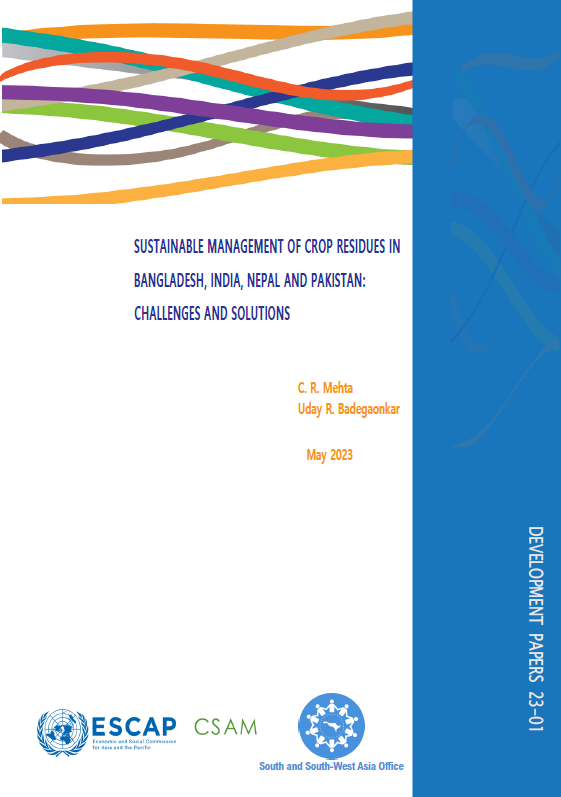This Research Paper examines why agricultural biomass burning is a crucial issue for South and Southeast Asia, and how the emissions from such burning impact climate change, health, environment, and economies, particularly in Least Developed Countries (LDCs). The Paper explores some of the fundamental reasons air quality issues persist and offers solutions, including leveraging regional cooperation, advanced monitoring techniques, and sustainable agricultural mechanization.
Acknowledgements: This paper was developed by Dr. Carly Reddington, Associate Professor, University of Leeds (U.K.), with contributions from Ms. Abigail Smith, as part of work commissioned by ESCAP’s Sustainable Urban Development Section of the Environment and Development Division and the Centre for Sustainable Agricultural Mechanization. Reviews and comments provided by supporting staff are gratefully acknowledged.
Cover page photo: Tribhuvan University, Nepal
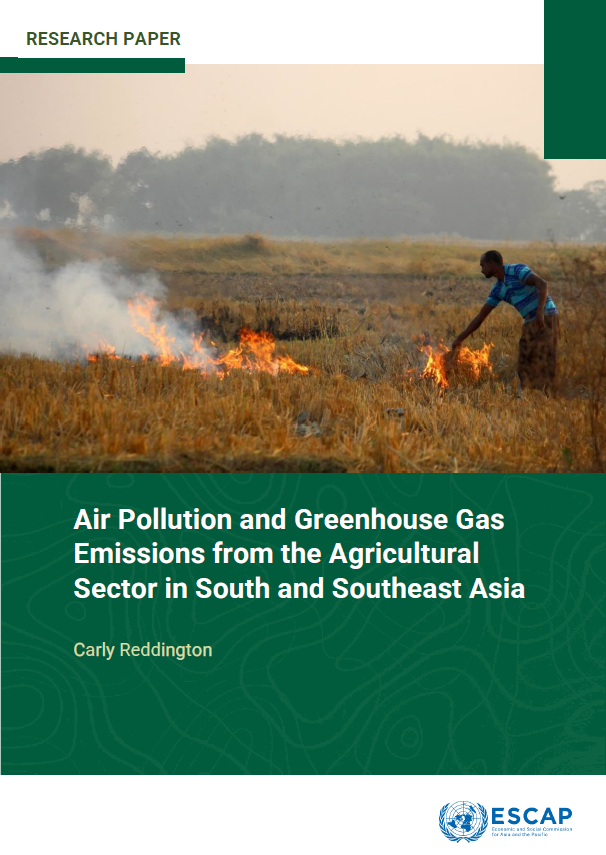
This brief highlights the results and recommendations from a pilot on agricultural machinery-based solutions to address burning of straw residue in Cambodia which leads to air pollution and other adverse consequences. The pilot was part of a project jointly implemented during 2021-2023 by ESCAP’s Centre for Sustainable Agricultural Mechanization (CSAM) and Environment and Development Division (EDD) in three countries in South and Southeast Asia with financial support from the China-ESCAP Cooperation Programme. The brief is part of a series of four briefs.
Acknowledgements: This brief was developed by Ms. Abigail Smith as part of work commissioned by ESCAP’s Sustainable Urban Development Section of the Environment and Development Division and the Centre for Sustainable Agricultural Mechanization. Reviews and comments provided by Dr. Carly Reddington, Associate Professor, University of Leeds (U.K.), are gratefully acknowledged.
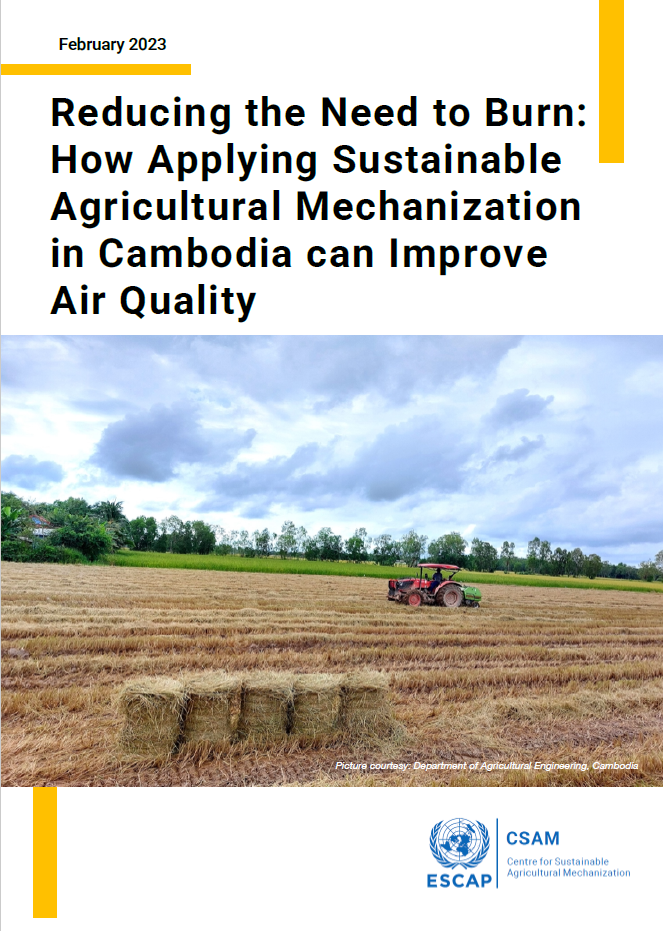
This brief highlights the results and recommendations from a pilot on agricultural machinery-based solutions to address burning of straw residue in Nepal which leads to air pollution and other adverse consequences. The pilot was part of a project jointly implemented during 2021-2023 by ESCAP’s Centre for Sustainable Agricultural Mechanization (CSAM) and Environment and Development Division (EDD) in three countries in South and Southeast Asia with financial support from the China-ESCAP Cooperation Programme. The brief is part of a series of four briefs.
Acknowledgements: This brief was developed by Dr. Carly Reddington, Associate Professor, University of Leeds (U.K.), also drawing upon inputs from Ms. Abigail Smith, as part of work commissioned by ESCAP’s Sustainable Urban Development Section of the Environment and Development Division and the Centre for Sustainable Agricultural Mechanization.
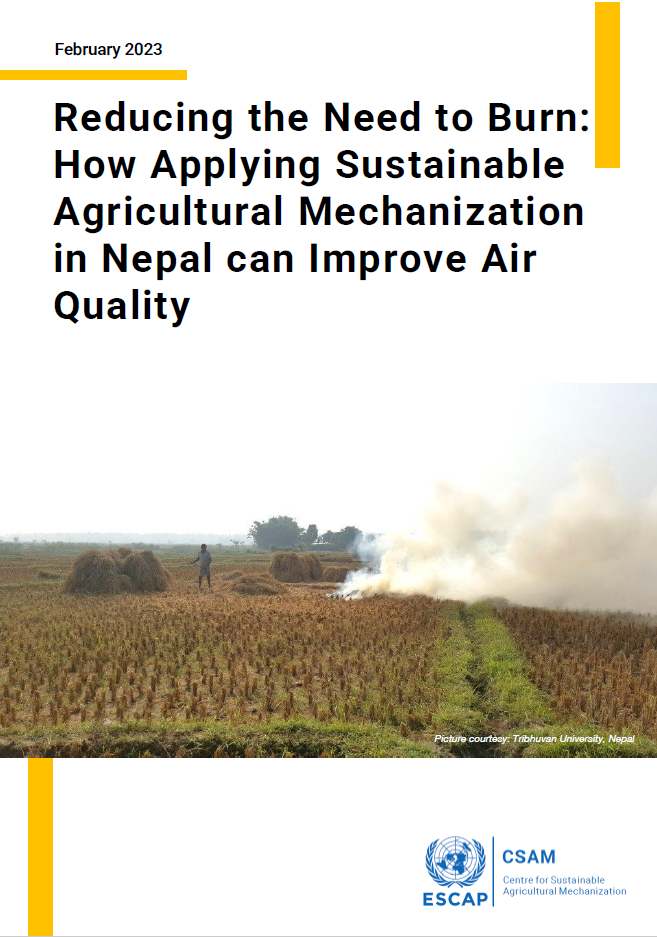
This brief highlights the results and recommendations from a pilot on agricultural machinery-based solutions to address burning of straw residue in Indonesia which leads to air pollution and other adverse consequences. The pilot was part of a project jointly implemented during 2021-2023 by ESCAP’s Centre for Sustainable Agricultural Mechanization (CSAM) and Environment and Development Division (EDD) in three countries in South and Southeast Asia with financial support from the China-ESCAP Cooperation Programme. The brief is part of a series of four briefs.
Acknowledgements: This brief was developed by Dr. Carly Reddington, Associate Professor, University of Leeds (U.K.), also drawing upon inputs from Ms. Abigail Smith, as part of work commissioned by ESCAP’s Sustainable Urban Development Section of the Environment and Development Division and the Centre for Sustainable Agricultural Mechanization.
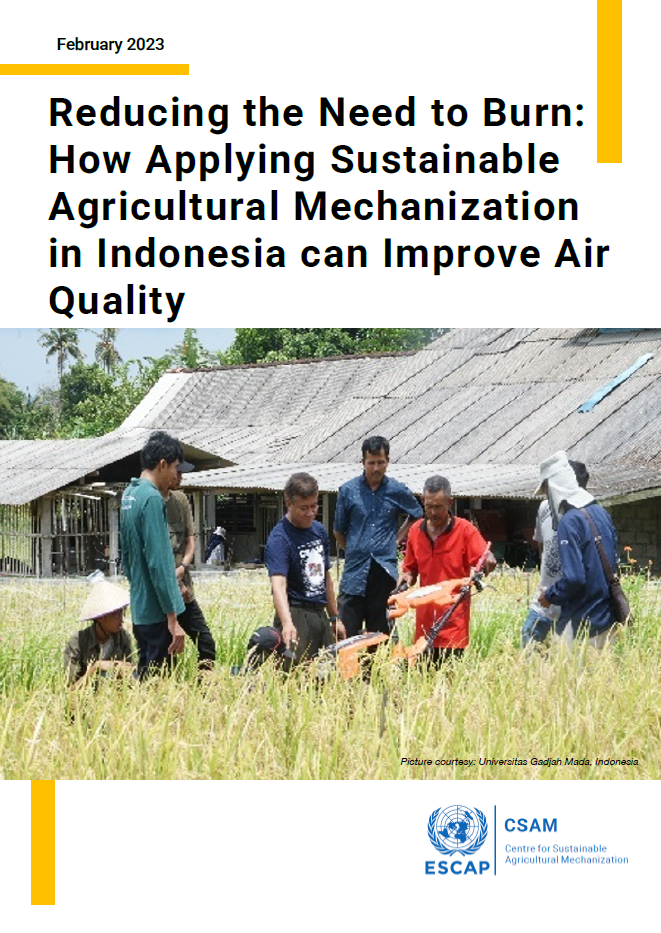
Burning of straw residue leads to air pollution and other adverse consequences, and is a serious concern in many countries in the Asia-Pacific region. This brief highlights the overall results and recommendations from a project on agricultural machinery-based solutions to address burning of straw residue in three countries in South and Southeast Asia, namely Cambodia, Indonesia and Nepal. The project was jointly implemented during 2021-2023 by ESCAP’s Centre for Sustainable Agricultural Mechanization (CSAM) and Environment and Development Division (EDD) with financial support from the China-ESCAP Cooperation Programme. The brief is part of a series of four briefs.
Acknowledgements: This brief was developed by Dr. Carly Reddington, Associate Professor, University of Leeds (U.K.), also drawing upon inputs from Ms. Abigail Smith, as part of work commissioned by ESCAP’s Sustainable Urban Development Section of the Environment and Development Division and the Centre for Sustainable Agricultural Mechanization.
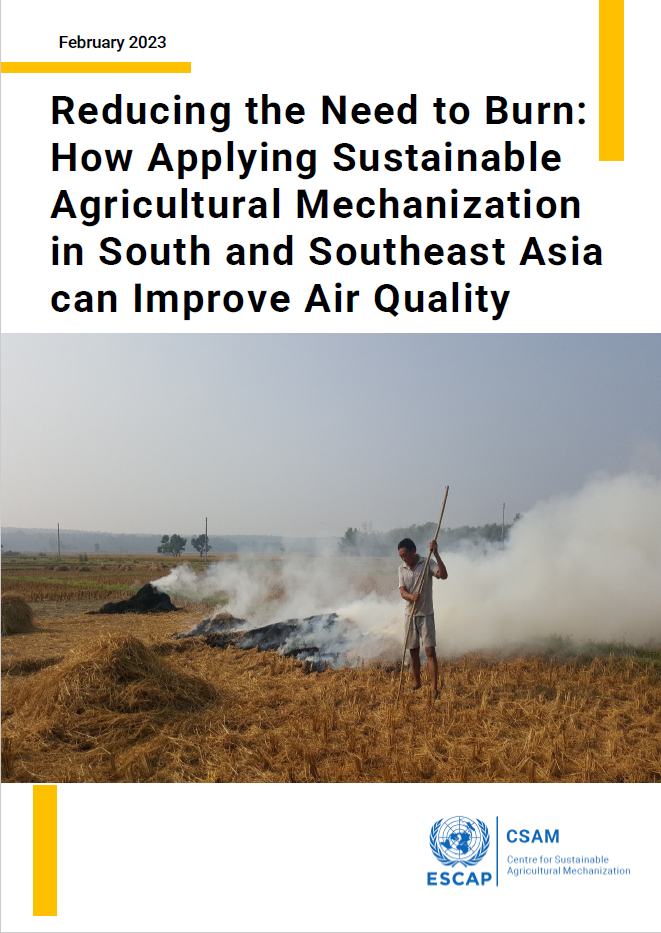
This paper was commissioned by the Subregional Office for South and South-West Asia and the Centre for Sustainable Agricultural Mechanization of the United Nations Economic and Social Commission for Asia and the Pacific, and summarizes findings of national studies undertaken in Bangladesh, India, Nepal and Pakistan to better understand the situation of crop residue management in these countries. Good practices and technologies of crop residue management are identified and interventions are proposed to reduce straw burning. Given the cross-border nature of air pollution, this report also proposes a subregional framework for cooperation to promote sustainable and integrated management of crop residue.
